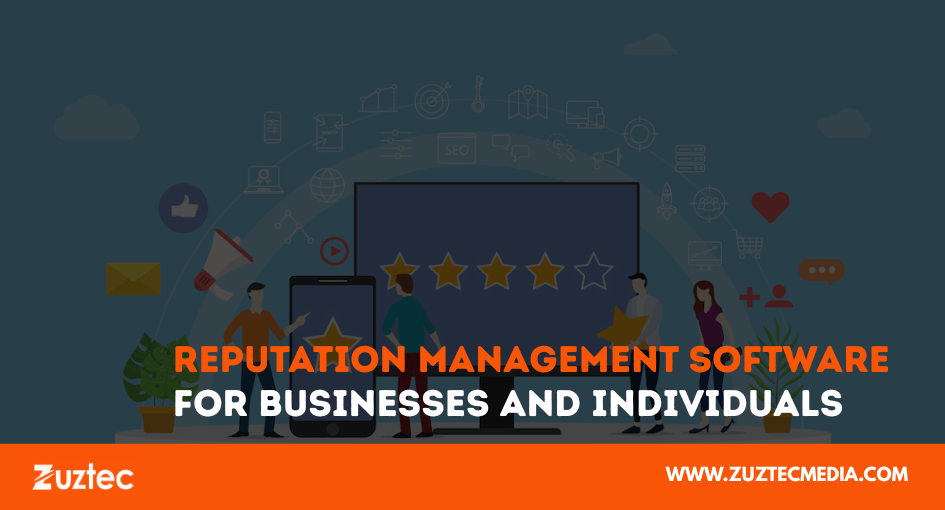
Reputation Management Software For Businesses And Individuals
A positive online reputation is vital for both businesses and individuals. With customer reviews, social media posts, and online mentions shaping public opinion, managing reputation has become a strategic priority. This is where reputation management software plays an essential role. It helps organizations track mentions, respond to feedback, and maintain control over their digital presence.
In today’s fast-moving digital landscape, it’s impossible to manually track everything being said about your brand. Reputation software simplifies this process by collecting data from multiple sources—review sites, social platforms, blogs, and news outlets. It provides real-time alerts, sentiment analysis, and centralized dashboards to make monitoring and response easier and more effective.
Whether it’s responding quickly to a negative review, amplifying a customer testimonial, or analyzing overall brand perception, this software enables timely and informed action. It also helps improve SEO by encouraging positive reviews and managing listings across directories, which contributes to higher search rankings and better visibility.
From small businesses to large enterprises, anyone with an online footprint can benefit from using reputation tools. Individuals—especially public figures, executives, or freelancers—can also protect their personal brand with similar strategies. This article explores the benefits of reputation software, how it works, and what to look for when choosing a platform to safeguard and enhance your online image.
Understanding The Role Of Reputation Management Software
It is designed to help users monitor and influence how they appear online. It typically includes features such as review aggregation, response management, sentiment tracking, and reporting tools. Consolidating feedback from different platforms gives a clear overview of public perception in one place.
Businesses use this software to address customer concerns faster and to ensure that no comment or review goes unnoticed. Some tools also offer automated responses or templates to help companies maintain a consistent voice. The data gathered through these systems helps identify patterns—such as recurring issues or positive themes—which can guide improvements in service or product offerings.
For customer-facing businesses like restaurants, healthcare providers, and e-commerce stores, the impact of a single review can be significant. Reputation software enables quick responses and ongoing engagement, which can turn dissatisfied customers into loyal ones. Moreover, regular monitoring helps prevent potential PR crises before they escalate.
Key Features To Look For In Reputation Tools
When evaluating software, the most important features to consider include real-time alerts, multi-platform integration, and customizable reporting. These allow users to track brand mentions across various websites and react quickly when needed.
Some of the more advanced tools also include AI-driven sentiment analysis that helps detect the tone of online conversations. This allows businesses to gauge emotional responses to their brand without manually reading each post or comment. Another valuable feature is reputation scoring, which assigns a measurable value to your current standing online.
In the midbody of your strategy, integration with CRM or customer service platforms is helpful. It ensures that customer feedback is tied to actual service cases, which improves accountability and follow-up. Businesses that integrate their feedback management process into daily operations see better customer satisfaction rates and reduced churn.
Benefits Of Using Reputation Management Tools
Using reputation management software has a direct impact on brand trust, customer loyalty, and even revenue. Positive online feedback influences consumer behavior, and managing this effectively leads to better customer experiences. These tools also reduce the time and resources spent manually tracking feedback or correcting misinformation online.
Another major benefit is the ability to identify new trends and expectations. If customers repeatedly mention the same concern, it reveals areas for improvement. Similarly, understanding what customers appreciate can help businesses tailor future offerings or campaigns to match their audience’s preferences.
Reputation tools also support internal teams. Marketing departments use them to plan better campaigns, while support teams use them to refine service approaches. Senior leadership can gain insights into overall brand health and potential risks. In this way, the software supports decision-making at every level of an organization.
Choosing The Right Platform For Your Needs
Selecting the right software depends on your specific needs and industry. Some platforms focus on local reviews and listings, which are ideal for small businesses, while others offer enterprise-level solutions with international monitoring and multi-location management. Commonly used tools include Birdeye, Podium, Yext, Reputation.com, and Brand24.
When comparing providers, review not only the features but also customer support, pricing, and data security. A tool that fits into your daily operations and provides accurate, real-time data is more valuable than one with extensive but underused features.
It’s also important to assess whether the platform offers long-term scalability. As your brand grows, your reputation management needs may evolve. Choose software that can grow with your business and adapt to new challenges.
Conclusion: Building Trust Through Proactive Management
To conclude, reputation management software is essential for anyone serious about protecting and enhancing their online presence. In a competitive digital environment, being reactive is not enough. Proactive monitoring, engagement, and analysis ensure that your brand remains strong, trustworthy, and well-regarded.
Using the right tools not only helps you respond quickly to feedback but also builds long-term credibility. Whether you’re recovering from a crisis or maintaining a strong reputation, these platforms give you the power to shape your narrative with confidence and consistency.

